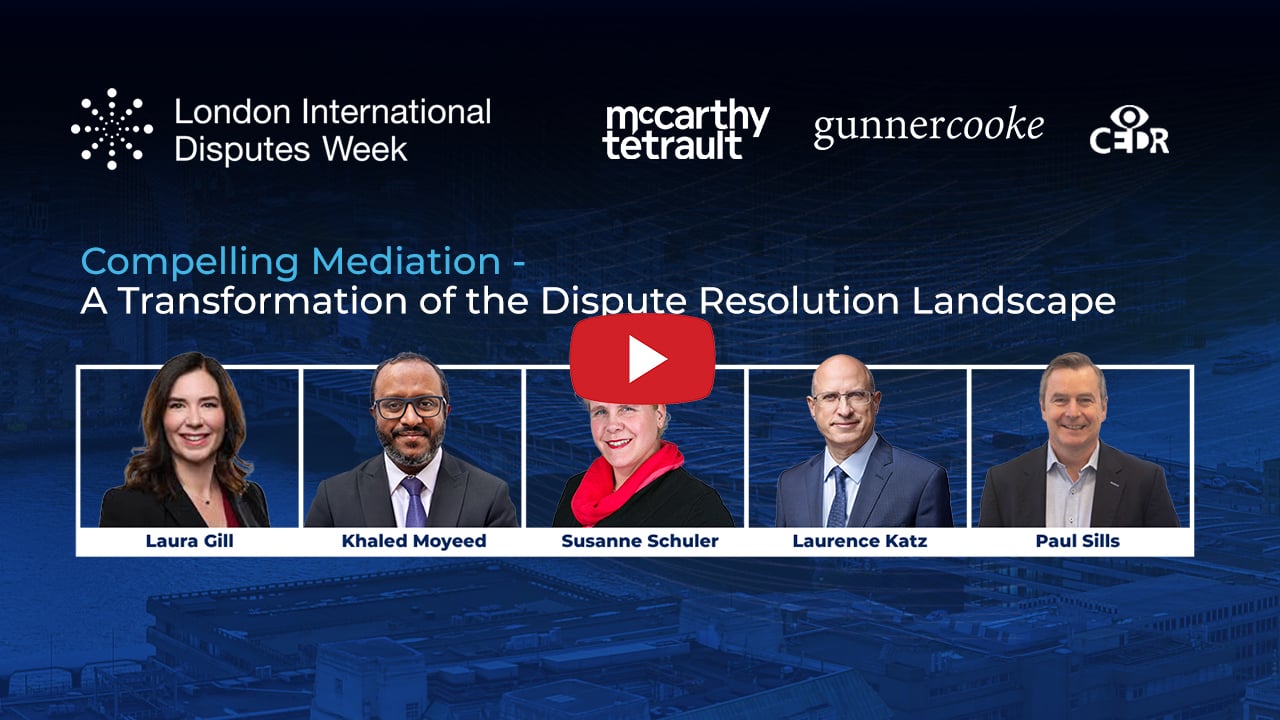
From left to right: Laurence Katz, Laura Gill, Khaled Moyeed, Susanne Schuler, Paul Sills
Overview
Can you force people to find common ground? That was the big question at the LIDW2025 “Compelling Mediation” panel, a spirited, cross-border discussion sparked by the English Court of Appeal’s Churchill decision, which opened the door to court-ordered mediation in England and Wales.
Multi-jurisdiction Panel
With experts from Canada, New Zealand, Europe, and the UK, the panel tackled how different countries have tried (and sometimes stumbled) when making mediation mandatory. Italy has been doing it since 2010 in certain civil cases. France made it a permanent fixture for government disputes, and Spain is gearing up to require all parties to at least try ADR before heading to court. The UK is now dipping its toes in the water – so what can we learn?
The heart of the debate: how do we make sure compulsory mediation works, and doesn’t just become a “tick the box and move on” exercise? The answer? A mix of court support, mediator skills, good-faith participation, and clear rules.
Things got especially interesting when panellists shared the creative, and sometimes strict, ways different courts handle parties who just go through the motions. Think of costs sanctions, mediator “good faith” certificates, and judges who don’t take kindly to half-hearted efforts.
A deeper concern raised was the possible privatisation and ‘lawyerisation’ of mediation, where the process risks becoming too technical, too expensive, or too dominated by legal tactics. As one UK speaker warned, this could alienate parties and erode trust. If mediation becomes overly procedural, it may lose what makes it effective: a space for parties to speak freely, take control, and find their own resolution.
That’s why the voluntary principle still matters. Even in a system with strong nudges or limited mandates, parties must feel they’re part of the solution, not just subject to a process. The goal isn’t just compliance, but meaningful participation. That means designing mediation systems that empower rather than overwhelm: clear guidance, accessible mediators, and early engagement that shows parties the benefits of resolving disputes on their terms.
Conclusion
So what’s the future? The panel wrapped with big ideas: education for everyone (not just lawyers), proper mediator training, maybe even a UK Mediation Act, and – yes – more data to prove this stuff works.
The UK now has a unique opportunity to shape a smart, balanced system.
Key takeaways: invest in mediator quality, build court support, and make mediation meaningful, not mandatory for its own sake.
Bottom line: Making mediation meaningful takes more than making it mandatory. It takes process design, trust, and a genuine invitation to take ownership of the outcome.
